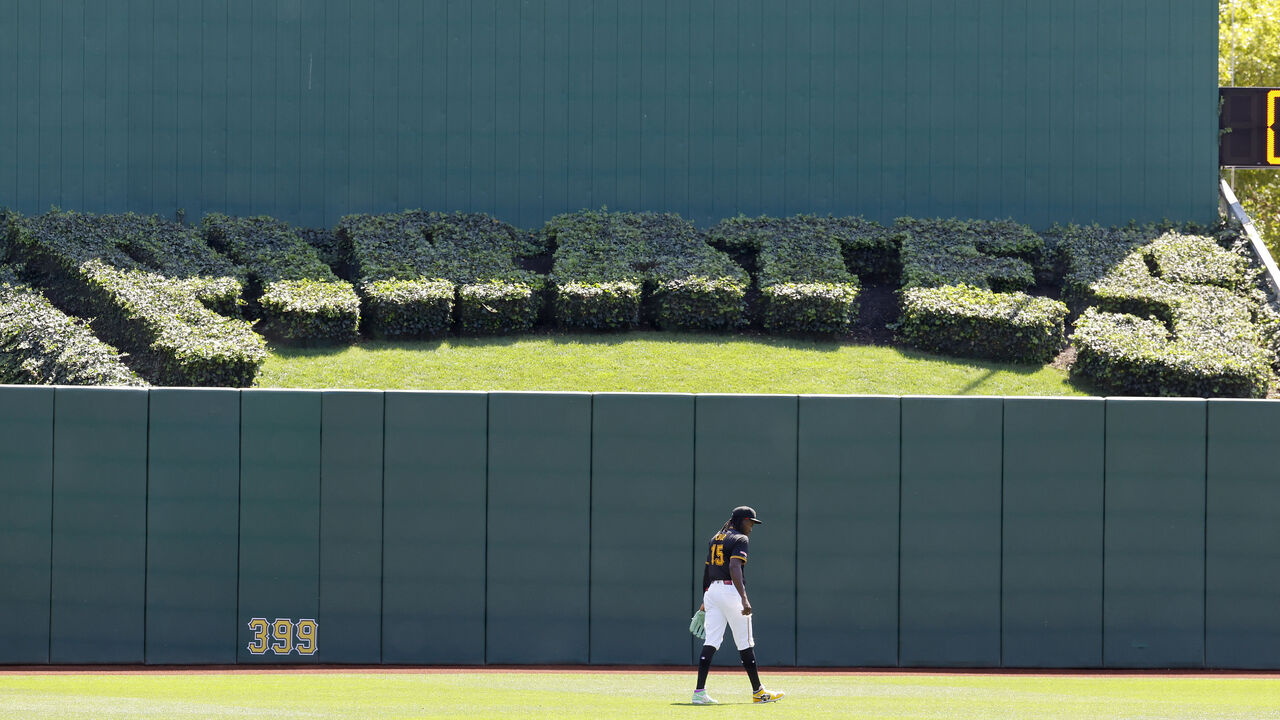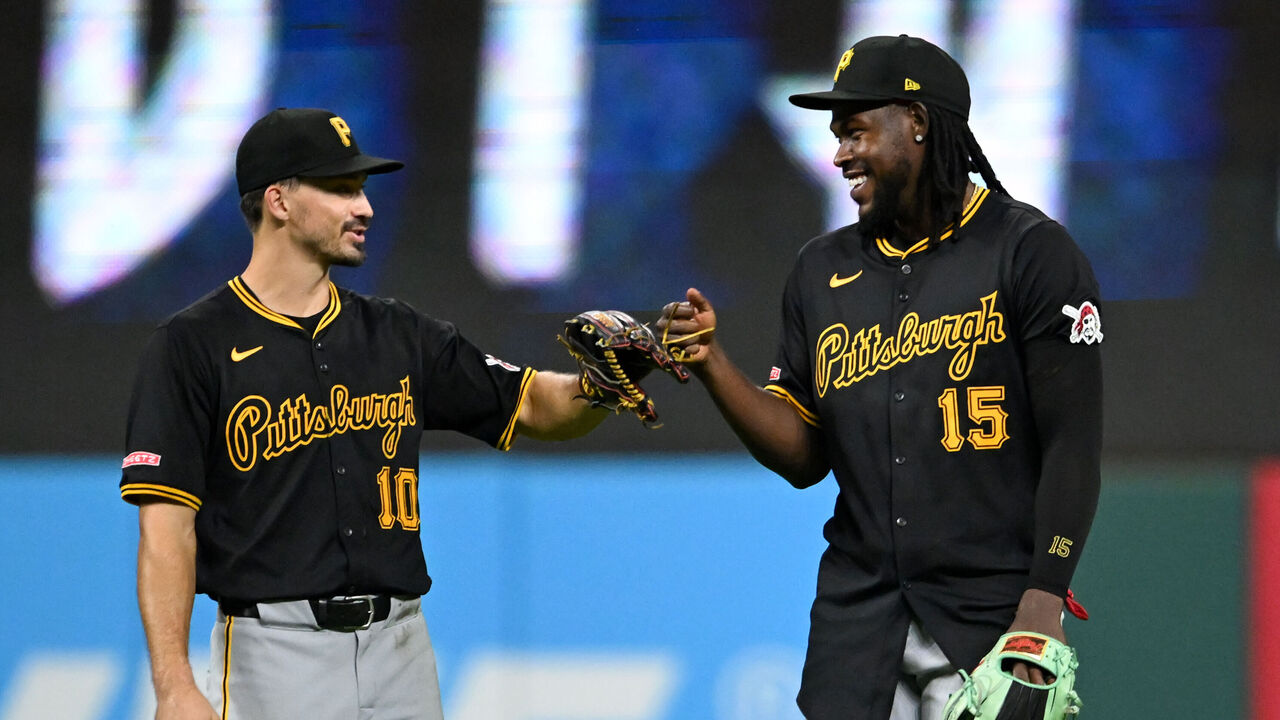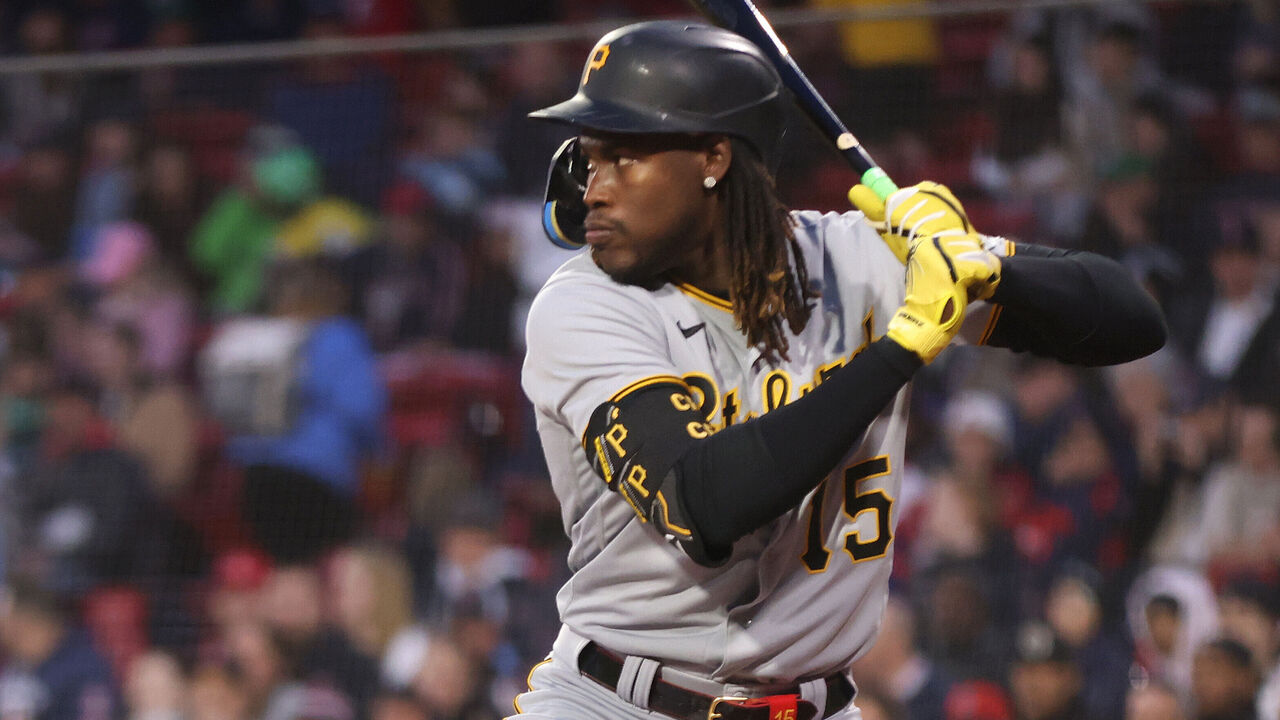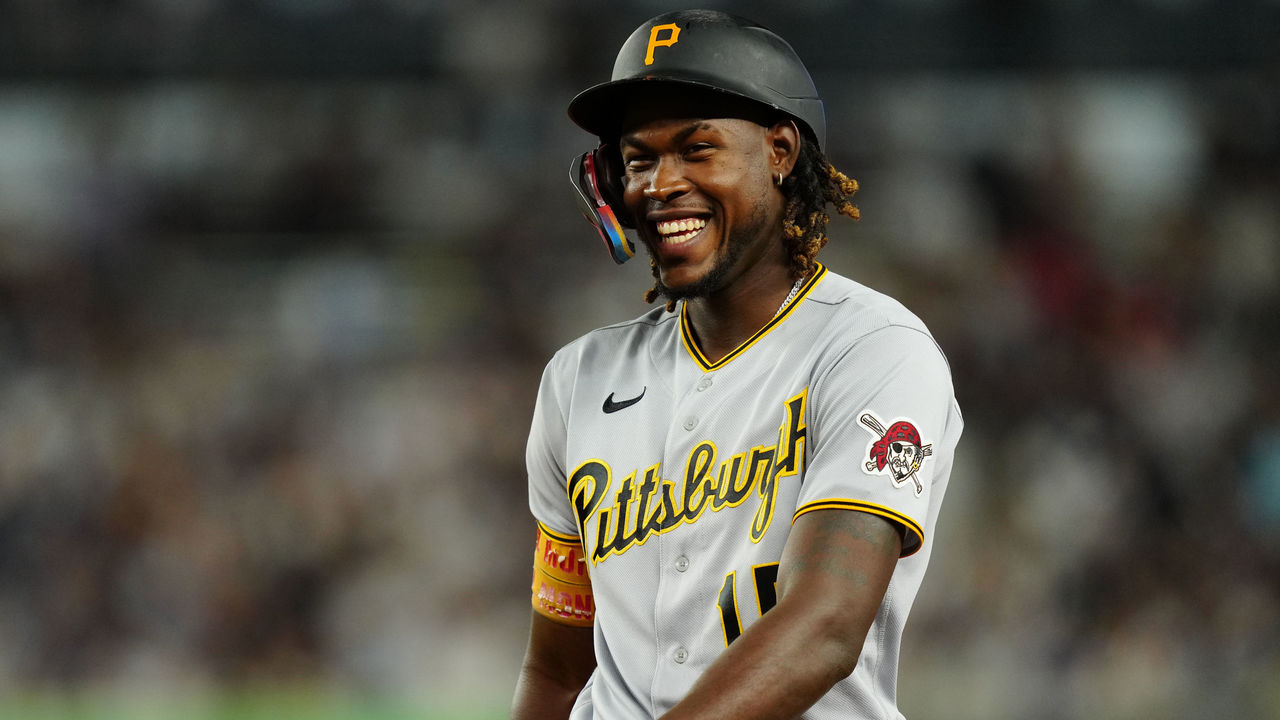Oneil Cruz is the ultimate player development puzzle
CLEVELAND - Only one non-pitcher in the major leagues has thrown a ball harder than Oneil Cruz's 103-mph heave this year. (It was Baltimore Orioles outfielder Colton Cowser.)
How many MLB players have hit a ball harder than Cruz this year? None. Cruz's 121.5-mph laser May 21 was the hardest-hit ball of the Statcast era.
121.5 MPH off the bat of Oneil Cruz 😳
— MLB (@MLB) May 22, 2024
Tie game. pic.twitter.com/RqEDJuiwW1
Not many players run faster, either. Of 542 major leaguers tracked this season, 21 have reached a speed of 30 feet per second more often than Cruz.
In terms of raw athletic talent, not even Shohei Ohtani is quite Cruz's equal. Of course, success in the majors is about more than raw talent. That talent must be refined into productive, repeatable skills.
A large gap remains between what is possible and what is present with Cruz. He's perhaps the greatest player development project in the game, and whether the Pittsburgh Pirates succeed in helping him realize his potential could determine their near-term fortunes. If the Pirates are going to become legitimate contenders, pitchers like Paul Skenes, Jared Jones, and Mitch Keller need more support from the lineup.

Cruz's bat has warmed recently, but his wRC+ of 112 is in line with his career mark of 109 - good but not great. Can Cruz realize his potential? There are two elements of his development: fielding and hitting. We'll start with defense after the Pirates moved him to center field from shortstop last week.
Phase I: The glove
The Pirates had been considering moving Cruz off shortstop for some time. His defensive metrics were declining and he made mental errors.
Standing 6-foot-7, Cruz is an unusual sight at shortstop - an athlete built more like an NBA wing. The only other shortstop at Cruz's height in MLB history was Joel Guzmán, who played nine innings there for the 2007 Tampa Bay Rays. Even Cincinnati Reds shortstop Elly De La Cruz is 2 inches shorter than Cruz.
Pure speed isn't vital at shortstop. Although shortstops such as Bobby Witt Jr., De La Cruz, and Tyler Fitzgerald are at the top of MLB's sprint-speed leaderboards, players without the same straight-line speed like Carlos Correa and Corey Seager can also excel there.
There is almost no statistical correlation between Baseball Savant's sprint speed and outs above average (per 1,000 innings) for shortstops. There is, however, a much stronger positive correlation for center fielders. Cruz's speed makes the prospect of him roaming gap-to-gap more compelling than stationing him on the infield dirt.

Cruz, at least publicly, seems to be embracing the move.
"I'm going to try to do my best every day to become one of the best," Cruz, via an interpreter, told reporters last week.
Perhaps it helped that when Pirates officials presented their decision, they focused on someone who thrived after making the same transition: Fernando Tatis Jr.
In his last season at shortstop in 2021, Tatis produced minus-6 defensive runs saved. In his first season in right field in 2023, he was plus-29.
Before batting practice, Pirates coach Tarrik Brock has Cruz stand in center, directly beyond second base. Coaches then hit ball after ball to his left and right, testing his range and his ability to decipher trajectory off the bat.
"He's going to have the same angles, but wider angles," Brock said to explain the difference between playing short and center. "Getting behind the ball, getting deep is key. You cannot really tell how hard the ball is hit off the bat until it gets out to you."
Cruz has had a rough first five games and 44 innings in center field. He's already made a throwing error, and his efforts have been worth minus-2 defensive runs saved. In 958 innings at shortstop this season, he was minus-8.
But Pittsburgh fell out of playoff contention after an 8-19 August, making September an ideal time to endure growing pains. If Cruz does fit in center, that would allow Isiah Kiner-Falefa, acquired from the Blue Jays at the trade deadline, to remain at shortstop next season.
"There's nothing better than MLB game reps to identify what is going well, what is not going well," Pirates manager Derek Shelton said in Cleveland over the weekend. "The fact that we'll have 30-plus games, we should have a much better indicator."
Phase II: The bat

Pirates hitting coach Andy Haines can see the upside, and he's not alone.
After a pregame batting practice session earlier this season, a coach from the opposing team approached Haines around the cage.
"Have you ever seen anything like this?" the coach asked Haines after watching Cruz effortlessly smash ball after ball over PNC Park's right-field wall - and occasionally into the Allegheny River beyond it.
"No, I haven't," said Haines, who once tossed batting practice to Giancarlo Stanton and Hanley Ramirez as a coach with the Marlins.
Converting that BP power into game power requires some imagination and some work. And the clock is ticking.
My goodness, Oneil Cruz clears EVERYTHING with this home run!
— MLB (@MLB) July 28, 2024
115.5 MPH, 472 feet pic.twitter.com/3h0lR2YlRT
Cruz will turn 26 in October, an age at which star talents have generally already established themselves.
But for context, Haines stresses how much time Cruz has lost: a full year of minor-league games in 2020 due to the pandemic and all but nine MLB games last year because he fractured an ankle in April.
All of spring 2023's swing-decision work - testing Cruz's ability to identify and lay off borderline pitches - resulted in a lower strikeout rate early that season, but his progress was derailed. The injury's effects also lingered this year.
"My range of motion wasn't completely there, especially in the first few months of the season," Cruz said via interpreter. "But right now, I am in a really good spot. I've been feeling way better."
Haines said, "We knew early in the season it was going to be something of a wild ride. Then you saw some uncertainty creep in, and that is indicative of not getting the ball in the air to his pull side. He was being way too careful, trying to feel his way through it."
Cruz struck out in 32.7% of his plate appearances in the first half to go along with a .249 batting average and 99 wRC+.
As Cruz struggled early this season, Haines tweaked his strategy. He asked Cruz to concentrate on hitting the ball in the air to the pull side. Haines believed that goal, plus the feeling of hitting the ball out front, would help Cruz get into better movement patterns.

"A little more conviction, being on time," Haines said. "When he makes that loud contact, you can see what can happen."
Cruz said, "It's been an adjustment with my upper body. The hitting coaches have emphasized keeping my upper body tall. That way, I don't dive into the plate. That will allow me to pull the ball. It keeps my swing in the strike zone longer versus when you dive into it - you come in and out too quickly."
Coaches have continued challenging Cruz with game-like batting practice, including a staple drill in which he hits off the high-velocity and breaking-ball machines set up side by side. Two coaches man them, and Cruz doesn't know which type of ball he's going to get. The Pirates also had Cruz use a Trajekt simulator, a training tool that mimics the stuff and motion of actual major-league arms.
Since July 1, Cruz owns a .319 average with a 140 wRC+ and has cut his strikeout rate to 27.5%. He's demonstrating great improvement against left-handed pitching, which has stymied him throughout his young career: Since the start of August, Cruz is batting .500 against lefties (13 hits and five strikeouts in 29 plate appearances).
In today's game, many young hitters don't get much of a chance to adjust to facing same-sided arms. Cruz is getting that opportunity, and the club's patience might pay off.
"Old, white-haired guys told me, 'Never bail on them,'" Haines said. "'Keep piling up the at-bats. Wait until August and see how much better they get.' That's stuck with me. We were in New York earlier this year, and he was really scuffling with some decision-making. I just kept hearing those guys in my ear: 'Just wait until August.'"
If Cruz can also turn things around in center field, the Pirates might have themselves a star. His trajectory is one of the more tantalizing player development stories in baseball, and there are still plenty of chapters to be written.
Travis Sawchik is theScore's senior baseball writer.